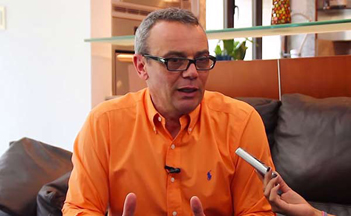BOGOTA/CARACAS, (Reuters) – A former Venezuelan municipal police chief and anti-government activist says he helped organize an operation to launch armed drones over a military rally on Saturday that President Nicolas Maduro has called an assassination attempt.
In an interview, Salvatore Lucchese, a Venezuelan activist who was previously imprisoned for his role in past protests, told Reuters he orchestrated the attack with a loose association of anti-Maduro militants known generally in Venezuela as the “resistance.”
The “resistance” referred to by Lucchese is a diffuse collection of street activists, student organizers and former military officers. It has little formal structure, but is known in the country mostly for organizing protests in recent years in which demonstrators have clashed with police and soldiers.
Reuters could not independently verify Lucchese’s claims about the attack, in which drones flew over the rally in central Caracas. Explosives aboard the drones detonated, injuring seven military officers and sending attendees scurrying for cover.
Lucchese described the incident as part of a sustained, armed effort against Maduro. He declined to describe his precise role in the operation, in the broader resistance or identify others involved, citing the need to protect their identity.
“We had an objective and in the moment we were not able to materialize it 100 percent,” Lucchese said in an interview in Bogota, where he is traveling because of activities with other opposition figures. “The armed struggle will continue.”
Venezuela’s Information Ministry did not reply to a request for comment.
Earlier this year, Lucchese parted ways with Popular Will, a prominent opposition party, saying he disagreed with its continued dialogue with Maduro’s administration. The government is widely criticized for authoritarian tactics, human rights abuses and economic policies that have led to recession and malnutrition across the formerly prosperous Andean nation.
Juan Guaido, one of Popular Will’s national leaders, said Lucchese was expelled for “differences with the party and the national leadership” but did not elaborate further.
Guaido also told Reuters Popular Will rejects the use of violence, a position echoed by other mainstream opposition parties in the wake of the attack.
Maduro, who was chosen by late leftist President Hugo Chavez as the Socialist Party candidate to succeed him in 2013, often says Venezuela’s problems are the result of an “economic war” by enemies abroad, including the United States. He blamed the drone attack on right-wing opposition figures and foreign enablers, specifically citing the government of neighboring Colombia.
Colombia’s government has denied any involvement.
Venezuelan authorities over the weekend arrested six people, including one suspect who had been detained for protests in 2014 and another wanted for involvement in a 2017 military base attack. The government said the drones carried plastic explosives detonated remotely.
Saturday’s blasts, which shook television footage from the rally and rattled nearby buildings, differed from previous suggestions by Maduro’s government of pending attacks against it. Maduro and top aides have spoken of foiled assassination and coup plots in the past, but provided little evidence for them.
Now, it remains unclear exactly how organized or equipped armed opponents may be.
A little-known group called the National Movement of Soldiers in T-Shirts over the weekend also claimed responsibility for the drone attack. It, too, describes itself as part of the “resistance.”
Lucchese declined to say whether he is associated with Soldiers in T-Shirts. A member of the group, who declined to be identified by name, in an exchange with Reuters via a messaging platform declined to comment on Lucchese.
The 52-year-old activist first drew attention after being jailed for ten months starting in 2014 for refusing to break up anti-Maduro protests. As police chief of the municipality of San Diego, in central Carabobo state, he disobeyed Interior Ministry orders to clear demonstrators, Lucchese said.
His account of the arrest and jail sentence is supported by a ruling on his conviction published by Venezuela’s Supreme Court at the time.
The government released Lucchese at the end of his sentence in February 2015, according to Lucchese and local media reports. Reuters could not find government documentation of his release.
Lucchese told Reuters he left Venezuela for an undisclosed location last August, after learning the government sought his arrest once more, this time for treason and inciting military rebellion. The warrant was widely reported by Venezuelan media in recent months, but Reuters was unable to review a copy of it.
Lucchese said he now resides abroad and continues to work with other anti-Maduro activists, stressing that armed resistance is the only way to topple Maduro. “No dictator leaves power peacefully,” he told Reuters.

